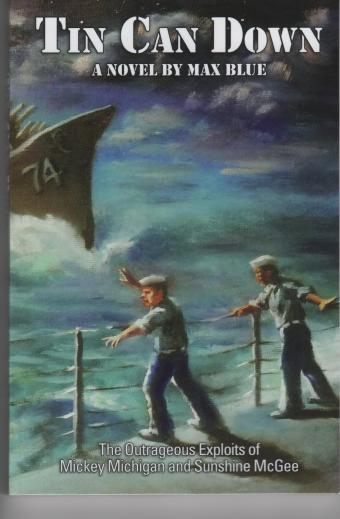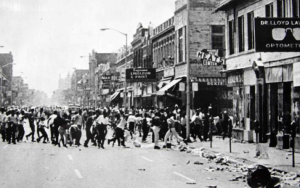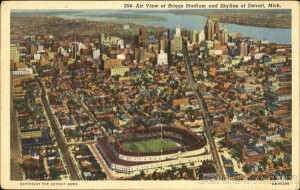WRITING
The first week of March, 2016, is in the books and Max Blue, blinking uncertainly, has awakened from a long winter’s sleep to discover that the need to write is as urgent as ever, maybe more so as the years continue to pile on. The Luminous Liddy sleeps in a nearby room early on a Pennsylvania morning, perhaps dreaming of the 17 years we spent in South Jersey before pulling up roots and moving to Lancaster last October. Or maybe she dreams of that day in April , 60 years ago, when she and Max stood before a magistrate in the Hong Kong Court House and vowed to take on the World, married and full of hope, wide-eyed and unafraid.
Urge to write? Tales? . . . Fishing Tales, Birding Tales, Costa Rica Tales, Jersey Tales, Philly Tales . . . 43 tales, 173 pages, 73,195 words.
Novels? Twelve . . . 340 chapters, 3,244 pages, a million and 78 thousand words, 388 characters. Baseball? Damn right . . . four published books, mostly but not exclusively, about the sorriest major league baseball franchise the world has ever seen – the Philadelphia Phillies. Max continues to search for an explanation – what is it about this game that inspires him to write more than 1500 limericks describing the action? The game is like a virus that entered his body before he was able to read and has touched him for more than 80 years bringing joy, despair, disgust, but mostly
HOPE
Despair is a slippery slope,
It’s just that much harder to cope
With poorly thrown balls
And umpire’s bad calls
Much better the sunshine of hope
FISHING TALES
6 tales 29 pages 13,799 words
LIDDY’S WISH
Liddy, to this day is still wishing
She was down by the river fishing.
She can’t shake this unscratchable itching
To feel her taught fishing line twitching,
And the taste of the smallmouth Bass dishing.
Tales:
(1) Blue Fish
(2) Headboat
(3) The Rhyme of the Ageless Piscadores
(4) Stover’s Dam
(5) Pink Cards and Piscadores
(6) Hell or High Water
THE RHYME OF THE AGELESS PISCATORS
Blue Mountain, just north of Harrisburg, is the southernmost ridge of the Appalachian chain as it sweeps through central Pennsylvania on its way to a rendezvous with the red clay of Alabama, just south of Birmingham. Blue Mountain, along with its sisters, Second Mountain, Third Mountain, and Peter’s Mountain, have dipped politely, gracefully, and some might say, majestically, to allow passage of the wide Susquehanna River. Fifteen miles north of Harrisburg, at Clark’s Ferry, the Juniata River angles in from the northwest to join the Susquehanna on a generally tranquil journey past the state capitol building, past City Island where they play baseball, and have rock concerts that attract 15,000 young people and keep the neighbors awake, past the nuclear power plants at Three Mile Island and Peachbottom, through the central Pennsylvania flatlands and into the neck of Chesapeake Bay, 70 miles away at the graceful harbor town of Havre de Grace, Maryland.
In 20 minutes, all things being equal, you can escape the traffic lights, the tailgating trucks, the fast-food joints, the bewildering cloverleafs, the general hullabaloo of the city. Head north along the Susquehanna where the land folds into mountains and unfolds into valleys like a giant piece of okra-colored corrugated tin. Cross over the creeks feeding the river, notice the water running out of the mountainsides even though we have been two months without rain. Cross the Clark’s Ferry bridge (a segment of the Appalachian trail), notice the solitary backpacker—an elderly lady wearing sneakers with a sign on her back: GEORGIA OR BUST. We have hiked this trail, Liddy and me. We have waded these streams and scaled these mountains to gaze in wonder at the fertile, peaceful, enchanted valleys. We have fished the Juniata, and we will do so again.
A few miles north of Clark’s Ferry the road leaves the Susquehanna behind, and winds upward alongside the Juniata, offering glimpses and occasionally stunning vistas of the river framed in a backdrop of rolling pastures and lonely farmhouses, their silos looking like exclamation marks on the landscape. The land is green with summer, but the hardwood trees shading the hillsides have felt the stirrings, and are musing about how their fall colors will be affected by the lack of rain.
Liddy and me begin our day on the Juniata panning for hellgrammites 300 yards north of the Millerstown bridge. According to my dictionary, a hellgrammite is the aquatic larva of the dobsonfly, which is a large insect having membranous wings, the male of which has greatly elongated, horn-like mandibles. But the small-mouth bass of the Juniata have their own definition—both the larva and the insect add up to one thing: lunch. If the larva is foolish or adventuresome enough to leave its hiding place under the rocks littering the floor of the river, it stands a better than even chance of having its destiny changed from pupa to hors d’oeuvre in the time it takes the laser-quick bass to say “Gotcha.” What tools the bass use to disarm the razor-sharp mandibles of the hellgrammite I do not know though doubtless they are the same the fish uses to immobilize the pincers of the crawfish, which they also find palatable. The hellgrammite has been described as a ferocious predator of other aquatic insects, and if you have ever held one of the squirming, black, two-inch, ten-segmented creatures between your thumb and forefinger, and felt the thrill of its mandibles sinking into your soft flesh, you would not doubt it. And yet, they are no match for the valiant small-mouth bass who treat them as if they were chocolate-flavored doughballs.
Finding the hellgrammites in scant supply, as usual, Liddy and me climb into our boat and begin drifting slowly downstream. Fish are jumping all over the place…a big one almost lands in our boat, (swear to God, Mac). Many fishermen are out…we see one in a bright yellow shirt carrying a bow and arrow. We see a father in ankle-deep water standing next to his young daughter, in knee-deep water. She has caught a sunfish and is excitedly reeling it in. Liddy is catching “sunnies” as fast as she can worm her hook, but she is in the market for bigger game.
We secure the boat to a large boulder in the stream above a rapids where the water discards all restraint and cascades and cataracts joyfully in every direction as it negotiates the rocky barriers strewn haphazardly in its path. These are the choice fishing spots on the Juniata, for below the rapids the rushing water has formed deep pools that attract the fish like a horde of hellgrammites. We have arrived at a particularly attractive area because here the water is terraced in a series of three rapids and pools. In August you can fish the Juniata in shorts and sneakers; just walk right out wherever you please…the water will rarely be more than waist-deep and the bottom is rocky and gravelly, giving firm, if occasionally slippery, footing. We stow the boat and take up positions convenient to casting our lines into the fast water from where they can be carried into the deep pools. Fishing below us is a young lady wearing a large, floppy, straw sun hat. She gives us a friendly wave as we start to fiddle with our lines.
Liddy decides that it is time to use the hellgrammites. I use a yellow Mister Twister that has come highly recommended. Liddy quickly hooks a six-inch rock bass and discovers we have forgotten our landing net. No matter: she takes a firm grip on the struggling fish and deposits it in her creel (which she calls a basket). The next fish is not so easy. I am 20 yards upstream casting my Twister into the bubbling swirl, when above the roar of the rushing water I hear what sounds like a shout. I look up to see Liddy’s rod bent like a fish-hook and quivering like a plucked guitar string. This is no six-inch rock bass. I cannot hear what she is shouting, but I recognize the pitch and the urgency. It translates: “If there is a Knight in shining armor anywhere in the vicinity, let him now appear, for the opportunity to perform a heroic deed is at hand.”
I lay my pole on a rock and head for the rescue. The rocks in the fast water are uneven and slippery, and I soon find myself struggling to keep my balance. I fall, and with nothing to hold onto, find myself rolling and tumbling with the fast water. I pass where Liddy is sitting on a large rock battling her catch, and at the same time viewing with alarm the bottom of my sneakers. I regain my equilibrium just in time to lunge and grab her fish with both hands, in the same fashion that she would grasp me around the throat if I let this fish escape.
I am on my knees holding the throttled fish above my head. Liddy is laughing. The young lady in the floppy hat is a witness; she is also laughing. I don’t see what’s so funny. With a superhuman effort I crawl back to Liddy’s rock,
intent on not losing the fish. Finally we get it into the creel. It is a twelve-inch channel catfish and it is a beauty, sleek with fast living and colorful as a rainbow trout which we thought at first it was.
Liddy and me sit on the rock for a long time, resting from the exertion. We are soothed by the sound of the surging water, and captivated by the vaudeville of patterns. A slim, brown water snake is making a gallant but losing effort to swim upstream. Liddy sees it too, and begins to stammer, “It, it, it…it’s coming towards us,” which it is not. Liddy is outraged that I would laugh at her fear which I have mistaken for jocularity. Liddy does not frighten easily, nor is she squeamish, so I am unprepared for what appears to be an authentic case of ophidiaphobia. She tenses as the snake drifts cross-current in our general direction, but on a path that will give us a very wide berth. She grasps my arm tightly. Beads of perspiration appear on her brow, tears run down her cheeks. With impeccable logic I make the case that the snake is no threat to us; indeed, that it has more reason to fear us than we it. Liddy will not be comforted. With shattering finality she counters every argument thus: “Oh yeah? That’s what you think.”
“Look, why don’t we go look for some more hellgrammites and forget about that damn snake?”
Liddy agrees, and we make our way to an area near the left bank where the water runs slowly over and around a medley of aimlessly scattered large and small rocks. We begin to examine systematically the nether side of the rocks for fish fodder. This time we are in luck, finding a fortune of hellgrammites clinging to the muddy side of the rocks. Soon we are back in the stream and Liddy begins to catch fish with astounding regularity. In two hours she catches four catfish, two small-mouth bass, and five rock bass, one almost record size. With each catch her excitement grows; her eyes sparkle, she cannot stop smiling.
Now she collars a two-inch hellgrammite and flings her line into the stream again. Momentarily, and with explosive suddenness, her line stiffens and begins to run off the reel in a wild and breathless rush. Liddy comes to her feet with a gasp and begins to reel in her line. She is greeted by the loud, complaining zinggg of the resisting reel, normally heard by us only when trying to free a snag. Liddy’s line is stretched to the snapping point. She slides the release on her reel and allows the fish to run free for a few moments until suddenly the line stops running; quickly she reels in. As Liddy plays her catch, I notice that the young lady in the floppy hat seems to be similarly engaged.
I become increasingly aware that the actions of Liddy and the young lady are synchronized. Finally, when the heroic fish vaults from the water in a desperate, thrashing maneuver, it is revealed to all that the fish is encumbered by lines from two directions. Liddy and the young lady in the floppy hat have simultaneously hooked the same fighting fish. Liddy stares at the young lady in disbelief. The young lady smiles. As if by silent command they begin to move closer together while at the same time continuing to play the fish. Soon they are standing side by side, knee-deep in the fast running water. They do not speak, but their movements are perfectly coordinated and shortly the exhausted fish is creeled. It is a magnificent small mouth bass—at least 18 inches—a real trophy.
At last we turn to look more carefully at the young lady who has taken off her floppy hat. Her features reflect the genes of two continents; she is very pretty.
She has jet black hair and the wide-eyed wonder and carefree air of an 18-year-old. She laughs gaily as she speaks.
“We can’t deny that you and I were in this thing together.
We pulled and tugged then found that we were joined by common tether.
But do not fear until you hear my thoughts on this fine treasure.
I yield my share, I would not care to take away your pleasure.
It is my wish that this great fish that vied for our attention,
be yours to keep—no not a peep, please not another mention.”
“We got a lulu here, Liddy,” I whisper.
Liddy is stunned. The combination of catching the big fish and being hit with the unexpected rhyme has left her speechless. She opens her mouth but no sound emits.
“I don’t know whether to be more shocked by what you said or by how you said it, but if I understand you correctly, you want us to keep this fish that was caught by you and Liddy simultaneously.”
“I’m pleased to see that you and me agree upon my meaning.
I never keep the fish you see, and thus avoid the cleaning.”
“I do see, but how do you do that?”
“Advice you wish, on how to fish?”
“No, not on how to fish. How do you manage to say everything in rhyme?”
“The reason for my rhyme, I think, is rooted in the river.
It’s doubtless also why my young partner wears a quiver.”
She points upstream where a young man carrying a bow and arrow and wearing a bright yellow shirt is waving. She curtsies and moves off in his direction.
Liddy and me fish for another hour without success. She has exhausted her supply of hellgrammites, and Mister Twisters are a poor substitute. Finally we have had enough. We board our anchored boat and motor upstream to the Millerstown bridge where we land the boat. As we are unloading our gear an old, gray-haired couple holding hands stroll by. He is wearing a bright yellow shirt, she is holding on to a large floppy straw sun hat.
They smile as they pass and she says: “I hope you enjoy your fish.”




